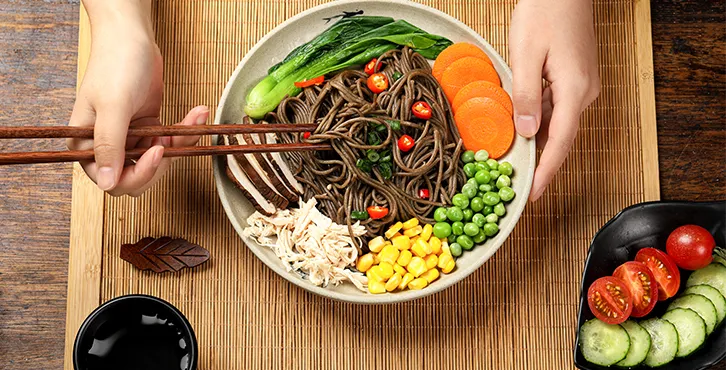are ramen noodles good for diabetics
Are Ramen Noodles Good for Diabetics?
Ramen noodles are a popular staple in many households around the world, known for their convenience, affordability, and versatility. However, when it comes to dietary considerations for individuals with diabetes, ramen noodles often raise concerns. This article will explore the nutritional profile of ramen noodles, their potential effects on blood sugar levels, and healthier alternatives for those managing diabetes.
Understanding Ramen Noodles
Ramen noodles are typically made from wheat flour, water, salt, and an alkaline mineral water known as kansui. This unique combination gives ramen its distinct texture and flavor. While traditional ramen may contain some vitamins and minerals, it is generally low in essential nutrients like fiber and protein. A standard serving of instant ramen contains around 400-500 calories, with high amounts of carbohydrates, sodium, and unhealthy fats.
The primary concern for individuals with diabetes is the carbohydrate content. Ramen noodles are high in simple carbohydrates, which can cause a quick spike in blood sugar levels. When consumed, the body breaks down carbohydrates into glucose, leading to increased insulin demand. For those with diabetes, maintaining stable blood sugar levels is crucial to manage the condition and avoid complications.
Blood Sugar Impact
Upon consumption, the refined carbohydrates in ramen can lead to rapid increases in glucose levels. This can be particularly problematic for diabetics who are trying to monitor their carbohydrate intake. The glycemic index (GI) of ramen noodles is relatively high—meaning they can raise blood sugar levels quickly after consumption. For people with diabetes, foods with a low or moderate GI are generally preferable, as they lead to a slower and more controlled release of glucose into the bloodstream.
Moreover, the high sodium content in instant ramen noodles can be an additional concern for diabetics, especially for those with hypertension or heart-related issues
. Processed foods often contain high levels of salt, which can contribute to increased blood pressure and fluid retention.Healthier Alternatives
are ramen noodles good for diabetics

While traditional ramen noodles may not be the best choice for diabetics, there are healthier alternatives and ways to enjoy this dish without compromising blood sugar control
1. Whole Wheat or Legume-based Noodles Instead of regular ramen, consider using whole wheat or legume-based noodles (such as chickpea or lentil noodles). These alternatives are higher in fiber and protein, which can help slow the absorption of carbohydrates and stabilize blood sugar levels.
2. Zoodles or Vegetable Noodles Swapping out traditional noodles with spiralized zucchini or other vegetables can significantly reduce carbohydrate intake while adding essential nutrients and fiber. This not only helps in managing blood sugar levels but also increases the volume of the dish, making it more filling.
3. Control Portions If you choose to consume traditional ramen noodles, consider reducing the portion size and pairing them with a source of protein (like chicken, tofu, or boiled eggs) and plenty of non-starchy vegetables. This can help slow carbohydrate absorption and provide a more balanced meal.
4. Homemade Broths Instead of using the often sodium-laden seasoning packets that come with instant ramen, consider making your own broth using low-sodium vegetable or chicken stock, along with herbs and spices for flavor. This can significantly reduce sodium intake.
5. Monitor Ingredients Always check food labels for carbohydrate content, fiber, and added sugars. Choose products that are lower in carbs and higher in fiber to better manage blood sugar levels.
Conclusion
In summary, while ramen noodles are not inherently bad, their high carbohydrate content and potential impact on blood sugar levels make them unsuitable for regular consumption among diabetics. By considering healthier alternatives and making mindful choices about portion sizes and accompanying ingredients, individuals with diabetes can still enjoy a delicious bowl of noodles without compromising their health. Ultimately, it is crucial for those managing diabetes to work closely with healthcare providers to develop a personalized meal plan that considers their nutritional needs and lifestyle preferences.
-
Unleash Your Inner Chef with Delectable Italian Pasta CreationsNewsAug.01,2025
-
Savor Health and Flavor: Irresistible Soba Noodles for Sale Await!NewsAug.01,2025
-
Nourish Your Body with Premium Organic Ramen - A Culinary Delight AwaitsNewsAug.01,2025
-
Elevate Your Dishes with Our Exquisite Kinds of Egg NoodlesNewsAug.01,2025
-
Dive into Flavorful Convenience with Our Ramen OfferingsNewsAug.01,2025
-
Discover Exquisite Types of Naengmyeon and Chilled Soba NoodlesNewsAug.01,2025
-
Is Whole Wheat Pasta Healthy?NewsMay.30,2025
Browse qua the following product new the we

















































































































